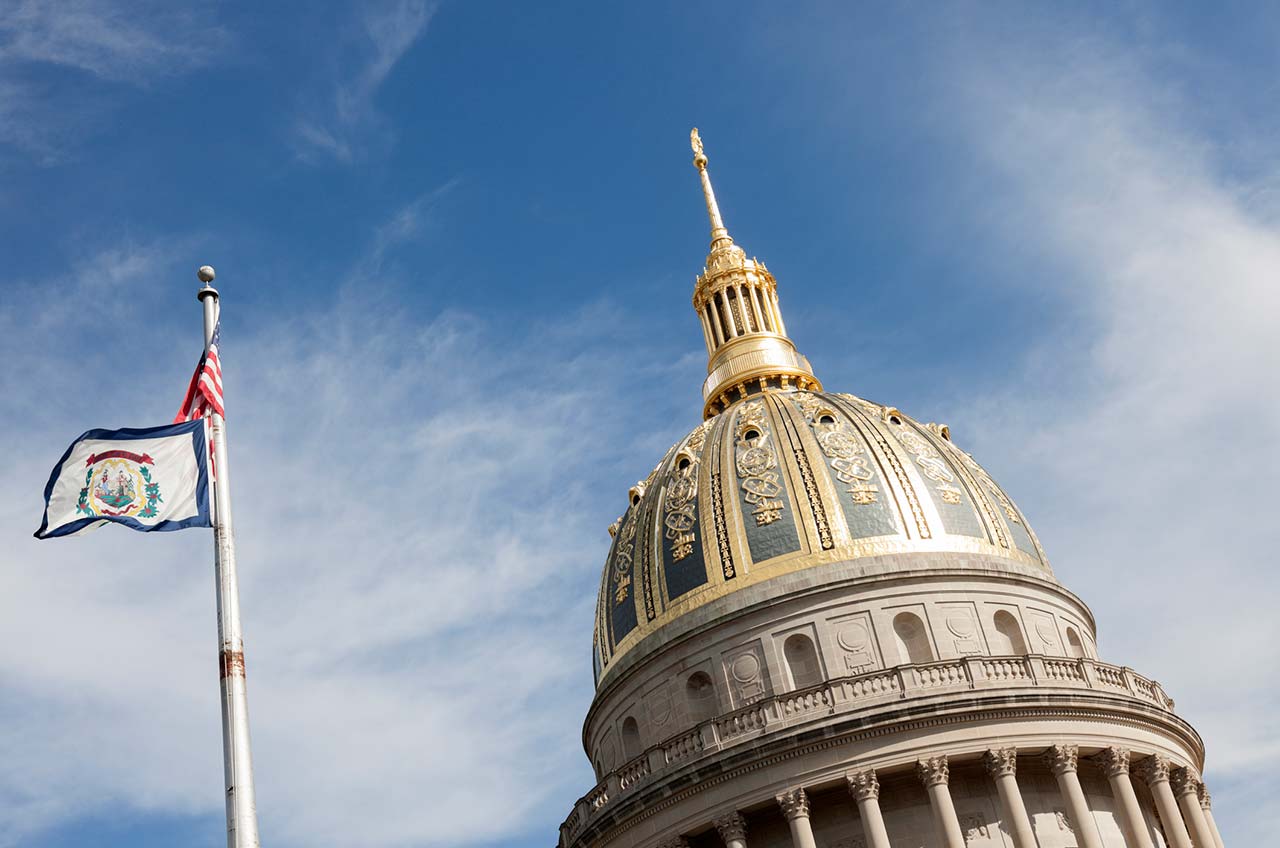Here Come WV Online Casinos: Online Gambling Bill Becomes Law


On Wednesday, the bill allowing legalized online casinos in West Virginia became law.
You read that right, H 2934, the West Virginia Lottery Interactive Wagering Act automatically became law when Gov. Jim Justice failed to act on the bill.
There was no indication if Justice would sign the bill. The West Virginia gambling community was holding it’s collective breath unsure of what Justice would do.
In fact, last year he chose not to sign the bill legalizing WV sports betting. Rather, he let it become law through inaction. He neither signed it nor vetoed it, allowing it to automatically become law 15 days (excluding Sundays) after it was sent to his desk.
What’s good for sports betting is good for WV online casino gambling.
West Virginia is now the fifth state to legalize some form of online poker or online casino gambling. However, West Virginia is only the third state to legalize mobile sports betting, online casino, and online poker. The other states are:
- New Jersey
- Pennsylvania
What does the WV online gambling law allow?
The West Virginia law is similar to other online gambling bills – meaning there is nothing out of the ordinary.
The new law will allow anyone within state lines, who is 21 years or older, to play online poker and other casino games.
A player does not have to be physically in a casino to play. Once a player is located within state lines they can play from a computer or mobile device anywhere in the state.
The new law greatly expands West Virginia’s gambling options. Pointedly, it allows online casino games and poker. These games will probably include:
- Blackjack
- Roulette
- Craps
- Slots
Basically, it includes any game found in a brick and mortar, Las Vegas-style casino.
Coming soon: 5 WV online casinos
The watch for online casino launch dates has officially begun. Now that online casino gambling is legal, existing land-based WV casinos can apply for a license. The bill opens the opportunity for five operating permits, one for each WV casino:
- Hollywood Casino at Charles Town Races
- Mountaineer Casino, Racetrack & Resort
- The Casino Club at The Greenbrier
- Mardi Gras Casino & Resort
- Wheeling Island Hotel
The new law sets the state up to collect a moderate 15 percent tax from online gambling revenue. In comparison, Pennsylvania imposes a 36 percent taxes on sports betting and 54 percent on online slots.
Additional revenue will be collected by the state through licensing.
Licenses cost $250,000 apiece to establish online gaming. The license is good for five years and costs $100,000 to renew. Platform and service management licenses cost $100,000, and supplier licenses are $10,000.
Estimates from Eilers & Krejcik Gaming shared in the WV Legislature during debate project first-year revenue for the state to be about $11.6 million.
Passage of the bill was not entirely based on generating additional revenue for the Mountain State. Del. Jason Barrett (D-Berkeley, District 61) led a group of bipartisan legislators in bringing the bill to a vote. He contends:
“Right now, online poker is illegal and it’s being done overseas and there are certainly some concerns there with the integrity of the games as well as making sure players are paid because it’s (currently) completely unregulated being offshore.”
The bill signed today will regulate the games and protect players.
The WV online casino bill drew bipartisan support
West Virginia legislators from both parties largely supported the bill in part because of its potentially significant revenue generation and will put WV in elite company. The House passed the bill on Feb. 22. with a large majority vote of 72-22. The Senate passed the bill, also by a large majority, 26-7 vote, on Mar. 8.
The reality is people are already gambling, both legally and illegally. The state can now collect from such activities through legalization, regulation, and taxation.
According to Del. Shawn Fluharty, a cosponsor to the bill, there is significant online gambling currently taking place offshore by West Virginia residents. Offshore gambling is unregulated and West Virginia receives no revenue from it.
Barrett agrees:
“iGaming has the potential to bring millions of dollars in revenue to our state.”
Recent Wire Act opinion implications
The law also makes it possible for the state to form a compact with other online gaming states. Such a compact would allow those jurisdictions to share players.
Of course, the hotly contested and recently-revised Wire Act opinion may keep interstate gaming on the back burner until the parties involved understand the DOJ’s intent with the opinion.
The West Virginia Lottery, the agency that regulates online gambling in WV, went on record saying the opinion is causing operators concern.
WV Lottery Director John Myers said to WV Metro News:
“It’s kind of given everybody caution on how to move forward until we can get that resolved. We are doing everything we can to try and work through that. We’ve been working through our national organization to try and get some idea on how the DOJ decision is going to come down.”
It is hard to know if this will impact the launch of WV online casinos.
West Virginia isn’t alone in seeking clarification. New Hampshire recently filed a lawsuit challenging the opinion, and West Virginia’s Attorney General led a coalition of 25 states citing its concerns.
Where will the money come from?
West Virginia is not a rich state. It is one of the 10 poorest states and its citizens rank 49th in disposable income.
The hope is to boost tourism by bringing in players from larger economy states such as:
- Ohio
- Maryland
- Virginia
- Pennsylvania
Only Pennsylvania currently has legalized online gambling.






